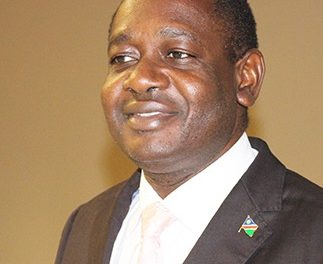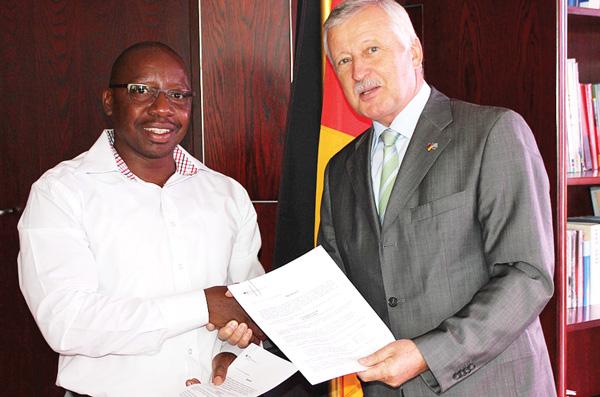
Universalising Broadband in SADC

The new Minister of Information and Communication Technology, Hon Tjekero Tweya, aping around with the delegates at the Communications Regulators’ Association of Southern Africa (CRASA) workshop which ran through out the week.
The Communications Regulatory Authority of Namibia (CRAN) hosted the event which was attended by the Ministry of Information and Communication Technology, Regional regulatory bodies and telecommunications licensees.
The closed 2nd Universalising Broadband in SADC Workshop and validation workshop are based on the Study Report for the Phase One of the SADC Open Access to Broadband Infrastructure project.
The workshop which was convened in conjunction with Ericsson, aimed at increasing capacity on how to develop National Broadband Plans for the Region as well as to identify the common broadband indicators to measure the performance in deployment and usage in the Region.
The Workshop focused on validating the draft SADC Guidelines for Development of National Broadband Plans.
Meanwhile, the Open Access to Broadband Infrastructure workshop validated the research report on Phase I of the Open Access to Broadband Infrastructure project.
The Research ICT Africa (RIA) are the consultants assisting CRASA with the implementation of the Phase I of the Open Access to Broadband Infrastructure project in the region. Opening the workshop, the Minister of Information and Communication Technology, Hon. Tjekero Tweya said “countries that have harnessed the potential of ICT’s have attained significant social and economic development”.
He further added that such countries are rapidly transforming into information and knowledge-based economies.
The Minister further stated that access to infrastructure is a key element to contribute to the availability of ICT services to allow for increased productivity and innovation in the region.
The workshops addressed amongst other, the challenges faced by regulators in the region, in particular the limited availability of backbone infrastructure, deliberate delays by infrastructure owners in responding to infrastructure sharing requests and the lack of capacity within regulatory bodies to address disputes and complaints.












































